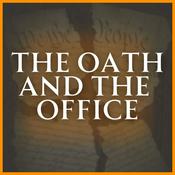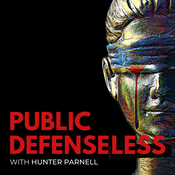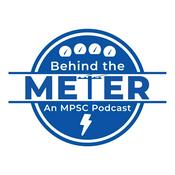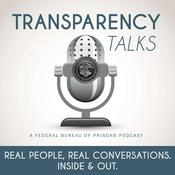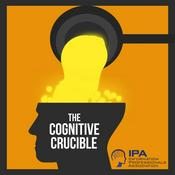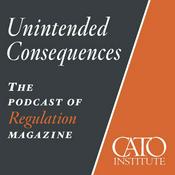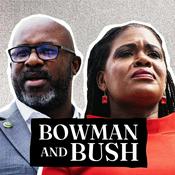253 episodes
- Dr. Ben Zweibelson, a retired US Army officer and author of "Bad War Stories" delves into the complexities of military planning, particularly in the context of nuclear deterrence and the lessons learned from two decades of conflict in Iraq and Afghanistan. Dr. Zweibelson discusses how traditional military strategies often fall short in real-world applications, emphasizing the need for innovation and adaptability in military doctrine. He shares personal anecdotes from his deployments, highlighting the emotional toll of war and the disconnect between military operations and strategic outcomes.
Dr. Zweibelson's book, "Bad War Stories," serves as a critique of the glorified narratives often portrayed in Hollywood, contrasting them with the harsh realities faced by soldiers. He argues that many military professionals are trapped in outdated thinking, which hinders effective planning and execution. The episode concludes with a discussion on the future of nuclear strategy in light of emerging technologies like artificial intelligence and quantum computing, stressing the importance of curiosity and innovation in military institutions.
Socials:
Follow on Twitter at @NucleCast
Follow on LinkedIn: https://linkedin.com/company/nuclecastpodcast
Subscribe RSS Feed: https://rss.com/podcasts/nuclecast-podcast/
Rate: https://podcasts.apple.com/us/podcast/nuclecast/id1644921278
Email comments and topic/guest suggestions to [email protected] Dr. John Copper - Taiwan in Focus: History, Identity, and the Realities of U.S.–China Tensions
1/20/2026 | 42 mins.In this episode of NucleCast, Adam talks with Professor John Copper, a leading expert on Taiwan, to discuss the complex history and current geopolitical landscape of Taiwan. The conversation explores Taiwan's identity, its relationship with China, and the implications of US-China relations. Professor Copper emphasizes the exaggerated urgency of China's reunification efforts and highlights Taiwan's unique position as a democracy in a region of authoritarianism. The discussion also touches on the historical context of Taiwan's development, the challenges it faces, and the potential paths forward for its future.
Dr. John F. Copper is the Stanley J. Buckman Distinguished Professor of International Studies (emeritus) and author of more than 40 books on Asia and international affairs. His newest book is Taiwan's Presidents: Profiles of the Majestic Six (Routledge, 2024).
00:00 Introduction to Taiwan's Complex History
02:11 Current Geopolitical Tensions and Perspectives
17:07 Historical Context of Taiwan's Identity
26:09 Wishes for Taiwan's Future Relations
Socials:
Follow on Twitter at @NucleCast
Follow on LinkedIn: https://linkedin.com/company/nuclecastpodcast
Subscribe RSS Feed: https://rss.com/podcasts/nuclecast-podcast/
Rate: https://podcasts.apple.com/us/podcast/nuclecast/id1644921278
Email comments and topic/guest suggestions to [email protected]- Professor Hugh White from the Australian National University discusses the evolving security landscape in the Asia-Pacific region, particularly in light of China's rise as a global power. The conversation explores the implications of the US-China rivalry for Australia, the role of allies, and the necessity of nuclear deterrence in maintaining regional stability. White expresses concern about Australia's reliance on the US and the need for a more self-reliant defense strategy as the geopolitical dynamics shift. The discussion culminates in White's wishes for clearer strategic understanding and cooperation among nations in addressing the challenges posed by China.
Hugh White AO is Emeritus Professor of Strategic Studies at the Australian National University. His work focuses primarily on Australian strategic and defence policy, Asia-Pacific security issues, and global strategic affairs especially as they influence Australia and the Asia-Pacific.
He has served as an intelligence analyst with the Office of National Assessments, as a journalist with the Sydney Morning Herald, as a senior adviser on the staffs of Defence Minister Kim Beazley and Prime Minister Bob Hawke, and as a senior official in the Department of Defence, where from 1995 to 2000 he was Deputy Secretary for Strategy and Intelligence, and as the first Director of the Australian Strategic Policy Institute (ASPI).
In the 1970s he studied philosophy at Melbourne and Oxford Universities. He was the principal author of Australia’s 2000 Defence White Paper.
His major publications include Power Shift: Australia’s future between Washington and Beijing, [2010], The China Choice: Why America should share power, [2012], Without America: Australia’s future in the New Asia [2017], and How to defend Australia [2019]
Chapters
00:00 Introduction to Australian Security Perspectives
02:14 The Rise of China and Its Implications
05:45 Australia's Strategic Dilemmas
09:28 Military Dynamics in the US-China Rivalry
13:44 The Role of Allies in Regional Security
19:36 China's Global Ambitions and Regional Responses
24:07 Nuclear Deterrence in a Changing Landscape
29:28 Wishes for Future Strategic Clarity
Socials:
Follow on Twitter at @NucleCast
Follow on LinkedIn: https://linkedin.com/company/nuclecastpodcast
Subscribe RSS Feed: https://rss.com/podcasts/nuclecast-podcast/
Rate: https://podcasts.apple.com/us/podcast/nuclecast/id1644921278
Email comments and topic/guest suggestions to [email protected] Byron Ristvet: Inside Nuclear Testing: History, Strategy, and Readiness (Part 2)
1/06/2026 | 57 mins.This is part two of a discussion featuring Dr. Byron Ristvet. The episode delves into the intricacies of nuclear testing, covering topics such as the history and types of nuclear tests conducted by the United States, Russia, and China. Byron shares insights into the technical and strategic aspects of nuclear testing, including the development and safety testing of nuclear weapons, the evolution of testing methods, and the challenges faced in maintaining nuclear readiness. The conversation also touches on the importance of deterrence and the current state of nuclear testing infrastructure.
Socials:
Follow on Twitter at @NucleCast
Follow on LinkedIn: https://linkedin.com/company/nuclecastpodcast
Subscribe RSS Feed: https://rss.com/podcasts/nuclecast-podcast/
Rate: https://podcasts.apple.com/us/podcast/nuclecast/id1644921278
Email comments and topic/guest suggestions to [email protected]Byron Ristvet: Inside Nuclear Testing, History, Readiness, and Policy Implications (Part 1)
12/16/2025 | 35 mins.In this episode of NucleCast, Adam talks with Dr. Byron Ristvet to discuss the complexities of nuclear testing, its historical context, and the current state of nuclear readiness. They delve into the types of nuclear tests, the role of various laboratories, and the controversial history surrounding Rocky Flats. The conversation highlights the importance of understanding nuclear policy and the implications of testing in today's geopolitical landscape.
Currently, Dr, Ristvet is a consultant to Sandia National Laboratory and Lawrence Livermore National Laboratory for studies on nuclear test detection, and through Keystone International and MSTS, a consultant to LANL, DoE IN-1 and NNSA/NFO. He is a Senior Mentor in Sandia’s Weapons Intern and Professional Development programs, and low yield nuclear monitoring research.
Prior to his semi-retirement in February 2017, Dr. Ristvet was a senior subject matter expert (SME) to DTRA’s Research and Development Directorate in the areas of nuclear and conventional weapons effects and testing, hard and deeply-buried-target characterization and defeat, counter-terrorism, cooperative threat reduction, knowledge preservation, nuclear test readiness, and to the Defense Threat Reduction Information Analysis Center. Prior to the underground nuclear testing (UGT) moratorium in 1992, he was the UGT containment scientist for the Defense Nuclear Agency. Based on his experience, he is an advisor to the U.S. intelligence community on foreign nuclear programs.
Dr. Ristvet had a key role in DoD’s Cooperative Threat Reduction efforts with the Russian Federation nuclear laboratories and the Kazakhstan National Nuclear Center. He is currently an Octant Associates consultant for DTRA nuclear proliferation prevention activities at the Semipalatinsk Test Site in Kazakhstan.
Chapters
00:00 Introduction to Nuclear Testing and Its Importance
01:20 Understanding Nuclear Testing: Types and History
05:38 Current State of Nuclear Testing and Readiness
09:05 The Role of Laboratories in Nuclear Weapons Development
13:34 Debunking Myths: The Rocky Flats Controversy
18:27 Types of Nuclear Testing Conducted
19:54 Key Takeaways and Future Considerations
Socials:
Follow on Twitter at @NucleCast
Follow on LinkedIn: https://linkedin.com/company/nuclecastpodcast
Subscribe RSS Feed: https://rss.com/podcasts/nuclecast-podcast/
Rate: https://podcasts.apple.com/us/podcast/nuclecast/id1644921278
Email comments and topic/guest suggestions to [email protected]
More Government podcasts
Trending Government podcasts
About NucleCast
Welcome to NucleCast, the official podcast of the ANWA Deterrence Center. NucleCast is an engaging, educational podcast featuring a series of discussions and interviews with experts in nuclear policy, technology, and deterrence. The show is hosted by Dr. Adam Lowther, Strategic Advisor to the ANWA Deterrence Center and an expert on nuclear deterrence.
Podcast websiteListen to NucleCast, Brief Recess: A Legal Podcast with Michael Foote & Mélissa Malebranche and many other podcasts from around the world with the radio.net app
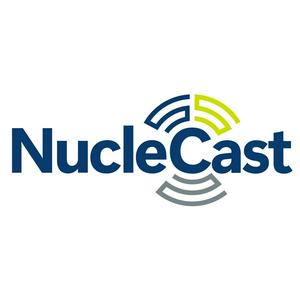
Get the free radio.net app
- Stations and podcasts to bookmark
- Stream via Wi-Fi or Bluetooth
- Supports Carplay & Android Auto
- Many other app features
Get the free radio.net app
- Stations and podcasts to bookmark
- Stream via Wi-Fi or Bluetooth
- Supports Carplay & Android Auto
- Many other app features


NucleCast
Scan code,
download the app,
start listening.
download the app,
start listening.





